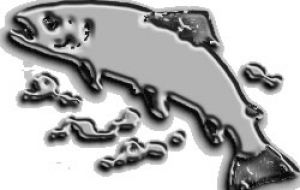MercoPress. South Atlantic News Agency
Chilean seabass blacklisted in the US as a “health risk”
 Sonapesca assured that mercury levels in seabass exported from Chile are low
Sonapesca assured that mercury levels in seabass exported from Chile are low The United States based Seafood Watch Program (SWP) has blacklisted Chilean seabass, advising U.S. consumers that the fish species is commonly exposed to mercury contamination. To prevent possible health risks, SWP suggests a significant decrease in Chilean seabass consumption, especially for children, who should be restricted to a maximum of one serving per month.
Funded by the Monterey Bay Aquarium Foundation and partnered with environmental defense NGO Oceans Alive, SWP's mission is to inform consumers about health and environmental concerns in order to promote safe and ocean-friendly choices. According to the Monterey Bay Aquarium Foundation, scientists estimate that over half of Chilean seabass sold in the U.S. market are caught illegally in remote Antarctic waters. Chilean officials, however, vehemently deny the health concerns expressed by SWP. Héctor Bacigalupo of Chile's National Fish Society (Sonapesca) assured that mercury levels in seabass exported from Chile are low and that the fish's extraction complies completely with all international fishing regulations. Álvaro Contreras, trade manager at fish export firm Pesca Chile, insisted the Chilean fish catches are "100 percent legal." Still, SWP insisted that the methods of fishing Chilean seabass are not environmentally sound and are illegal. Most Chilean seabass is caught using longlines, essentially comprised of many small lines of baited hooks hanging on a central line, which can stretch anywhere from one to 80 km behind the fishing vessel. Longlines are known to produce significant bycatch, meaning other types of fish or animals are often caught accidentally in the process. In the case of the Chilean seabass, longlines are a particular threat for the endangered albatross. These seabirds dive for the bait as the longlines are cast into the ocean, where they catch on the hooks and drown. Chilean seabass are vulnerable to over fishing because the species is slow to grow, and breeds late in life. This makes regeneration difficult when there is continued heavy fishing. The SWP guide listed alternative purchases for Chilean Sea Bass. These include Striped bass, Pacific halibut, and white seabass, mahi mahi and sablefish (black cod). Other seafood that SWP said consumers should avoid includes shark and farmed salmon. The see SWP's complete list of recommendations, the reader may visit: http://www.mbayaq.org/cr/seafoodwatch.asp.(The Santiago Times)




Top Comments
Disclaimer & comment rulesCommenting for this story is now closed.
If you have a Facebook account, become a fan and comment on our Facebook Page!